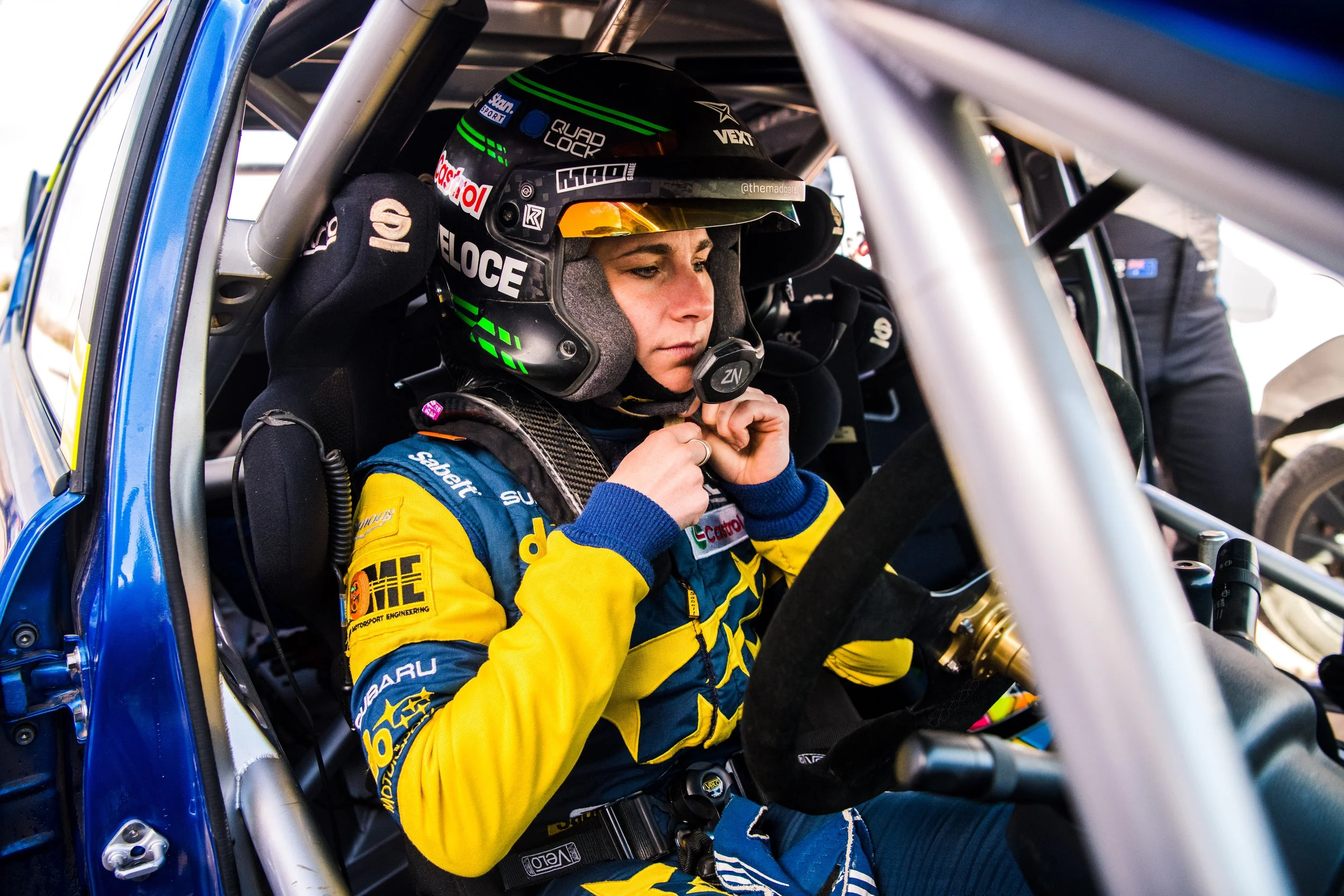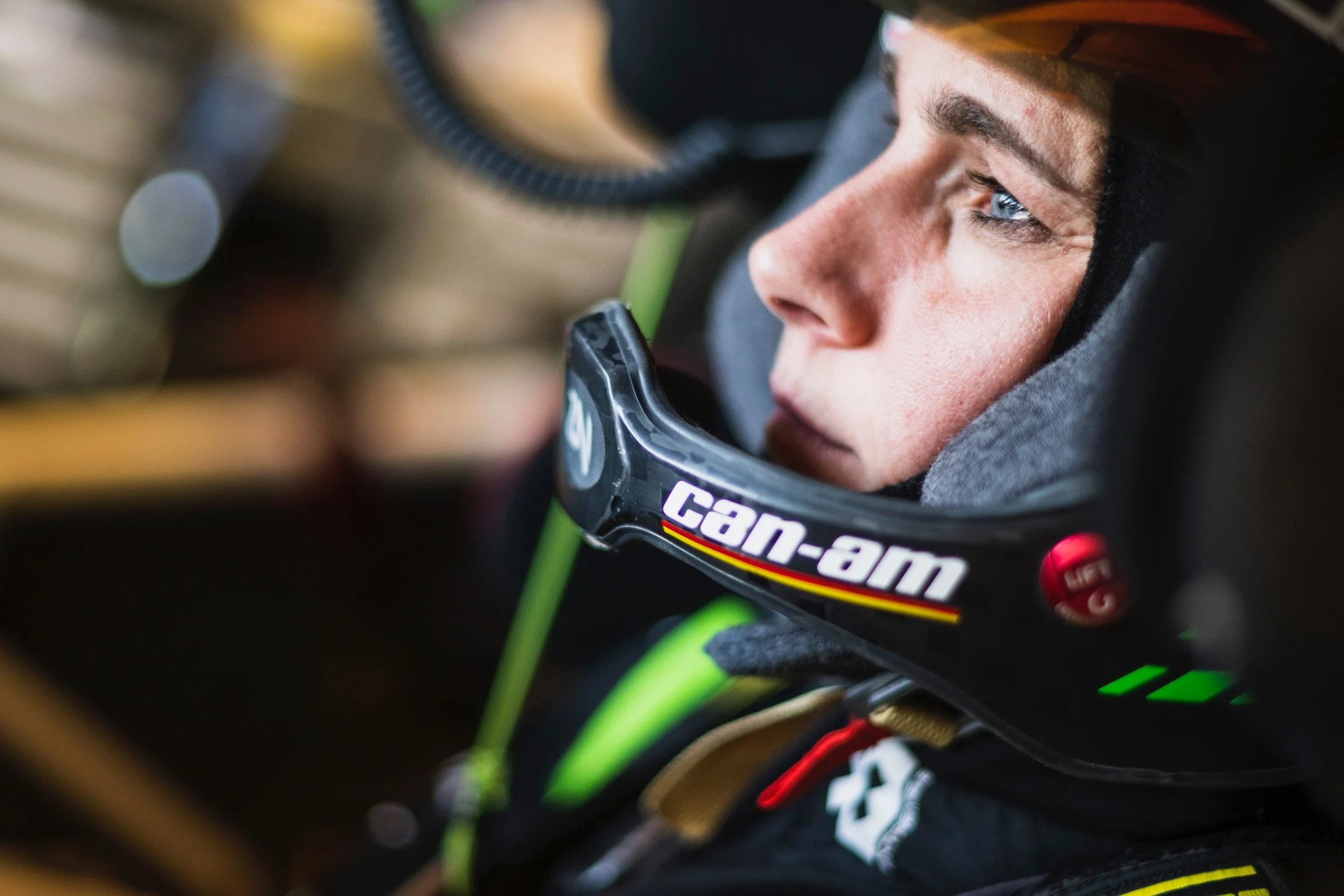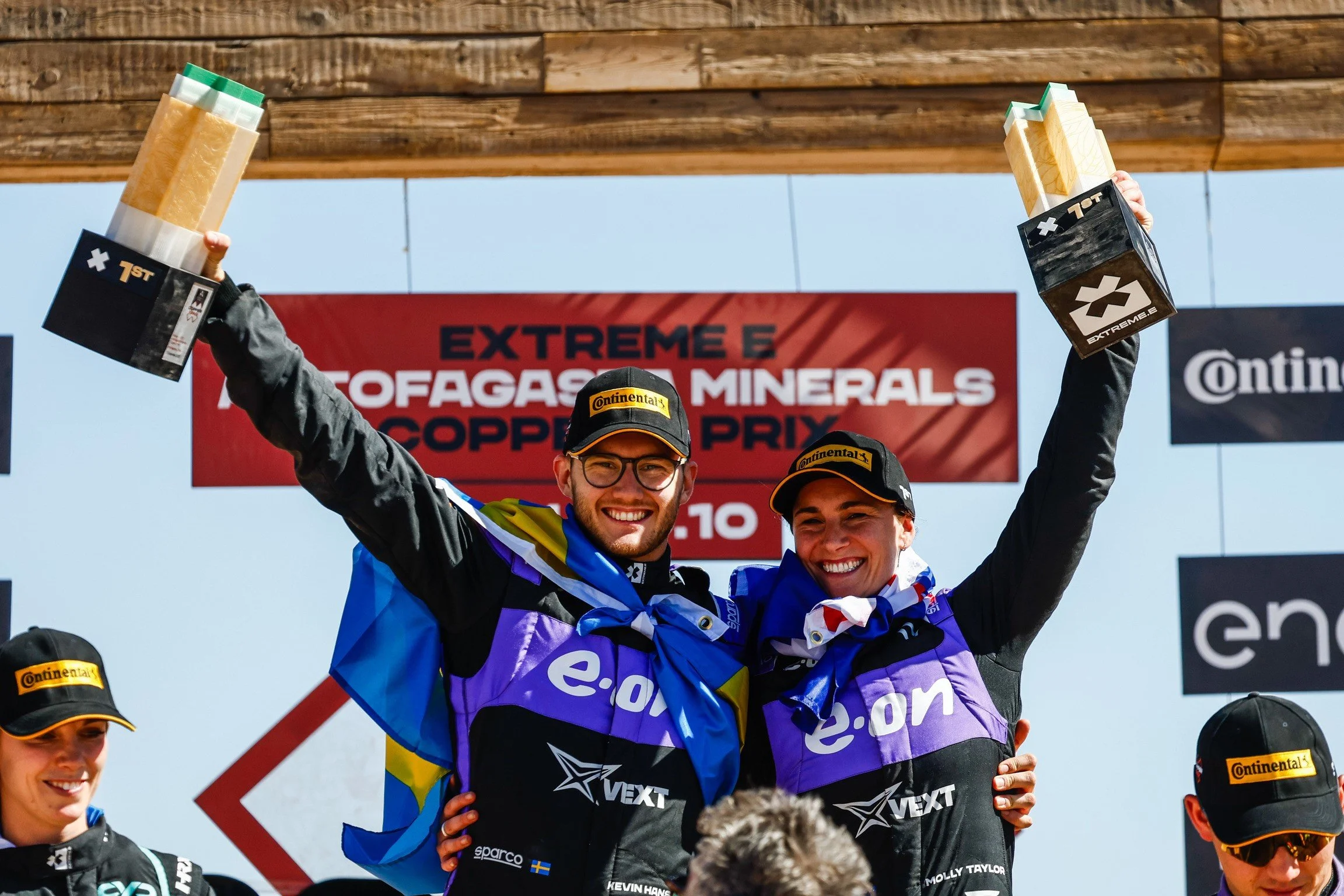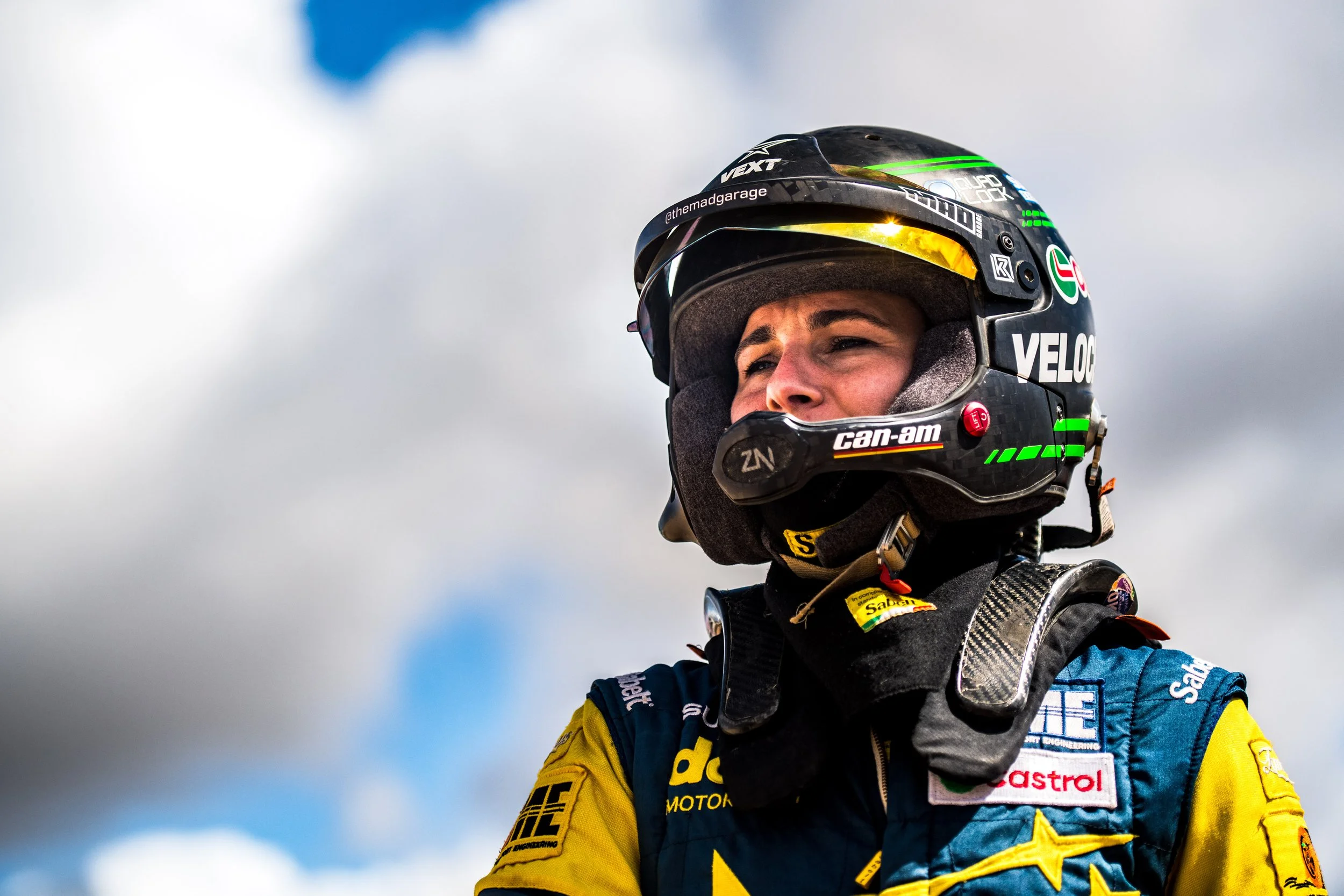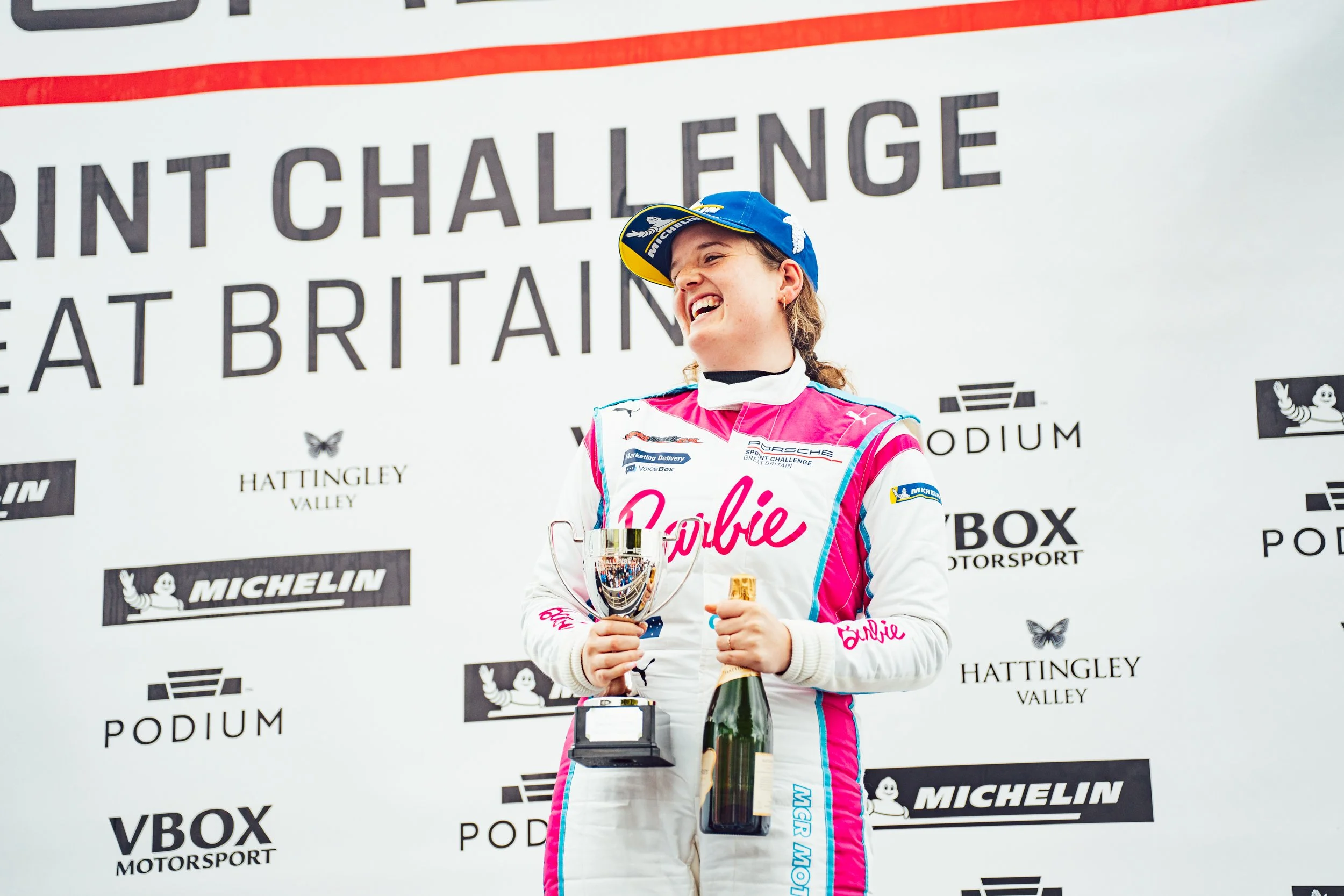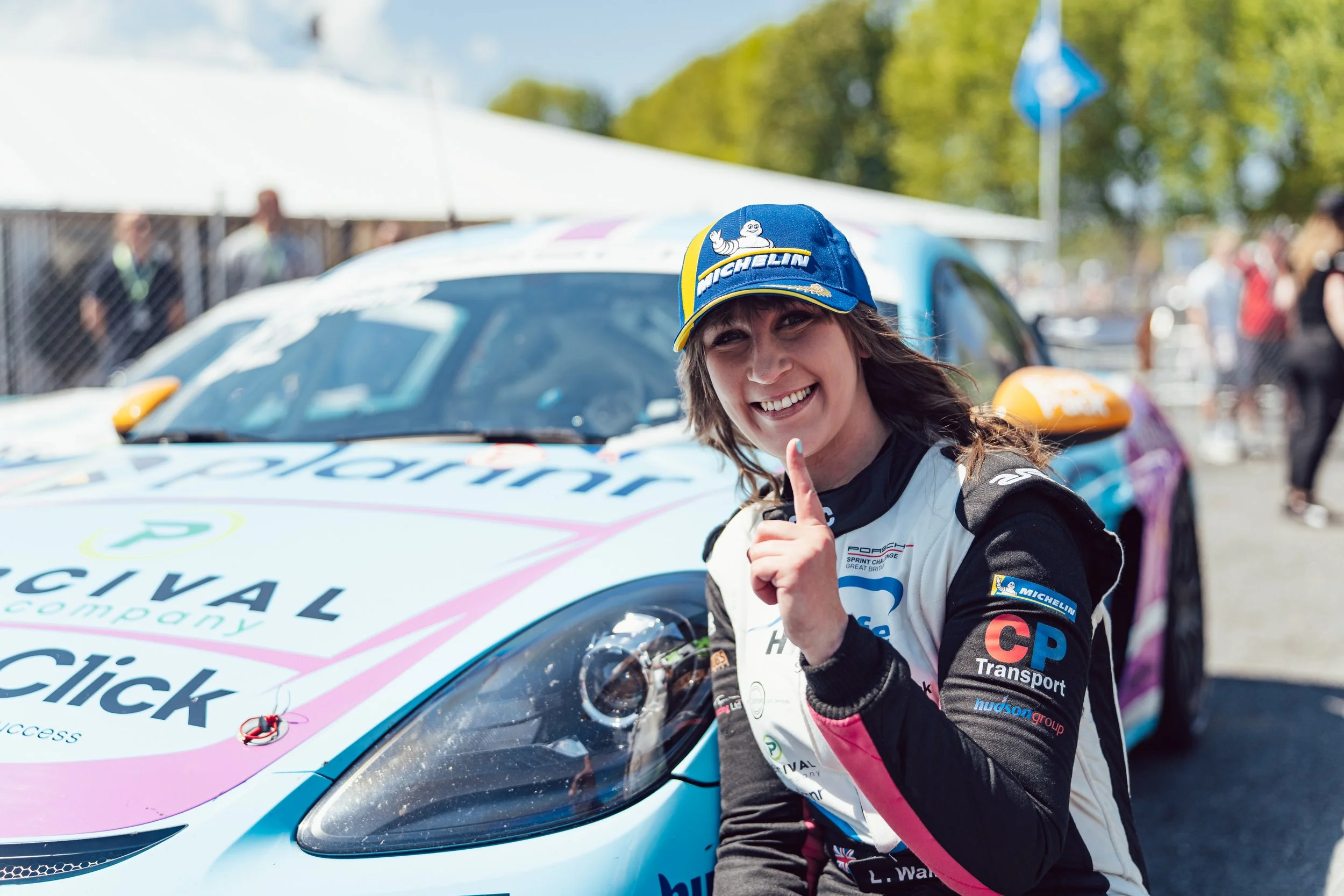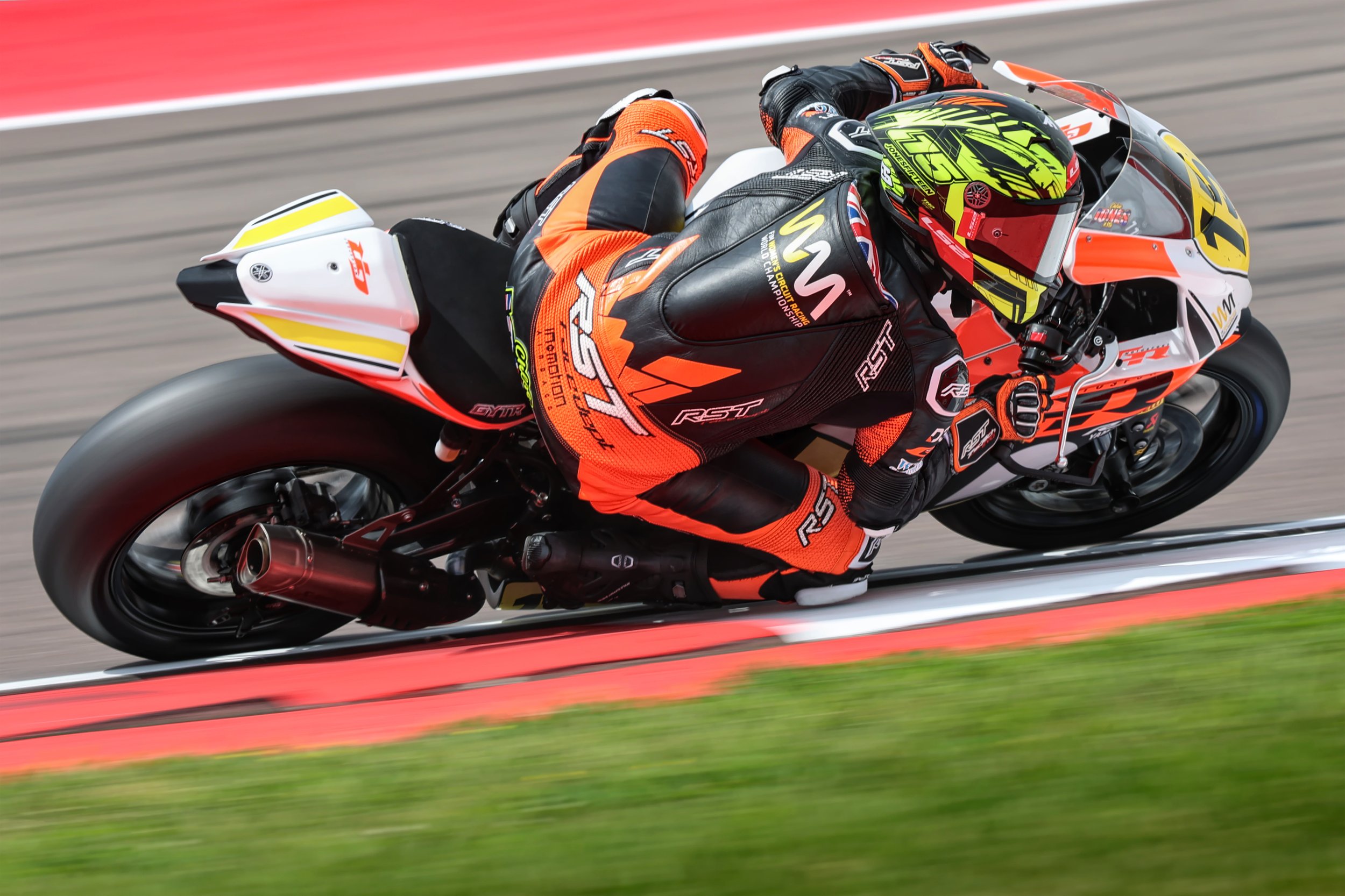Drive from within
Australian rally driver Molly Taylor’s path to becoming champion was fuelled by an unwavering inner conviction
Molly Taylor never set out to become a professional rally driver – but with motorsport in her family’s DNA, it was always in the background. At 16, after a few lessons behind the wheel at her dad’s rally school, something clicked.
Speaking to The 1v1 Project, Molly reflects on what it takes to operate at the very edge of control, the powerful legacy of her mum’s rallying career, and the inner drive that helped her make history. That drive, she explains, has to come from within.
“Motorsport is so tough – it’s such a roller coaster. You have to put it first and sacrifice everything else,” Molly explains. “If the drive doesn’t come from within you, I don’t think it’ll ever be strong enough to push you through all those dark days and tough moments.”
In a sport that demands so much from even its youngest drivers, it’s this deep, inner motivation which has helped Molly not just persist, but evolve in one of the most demanding and unforgiving arenas.
“If the drive doesn’t come from within, I don’t think it’ll ever be strong enough to push you through all those dark days and tough moments”
Getting started
Molly’s journey into motorsport was inspired by both her parents, but in different ways.
Her mum, Coral Taylor, a professional co-driver and six-time Australian champion, showed Molly what rallying could look like – competing at the highest national level throughout her childhood.
The practical push to actually try it, however, came from her dad, a former driver himself, who simply wanted his children to be confident behind the wheel.
At 16, she attended the rally school her dad was running – intended simply as training to improve control and competence on public roads. It was an experience that changed everything.
“I was actually obsessed with horses when I was growing up and I wanted to go to the Olympics riding horses,” Molly reflects. “It was only when I tasted rallying as a teenager that the penny dropped. I got hooked from then on.”
What felt like a late start at the time may have been one of Molly’s biggest strengths, instilling in her a self-driven commitment that would guide her through the challenges ahead.
“I felt I was a bit behind the eight ball by starting later,” Molly remembers. “I would joke to my parents, ‘Why didn’t you push me into this earlier?’ But it has to be you pushing you. So I suppose it happened in the way it was meant to.”
“I would joke to my parents, ‘Why didn’t you push me into this earlier?’ But it has to be you pushing you”
European opportunity
After finishing school, Molly made a career-defining decision: she dropped out of university and moved to the UK to pursue rallying full-time. In 2009, aged 20, she found herself living in the middle of nowhere outside Milton Keynes – a world away from the Australian landscape she’d grown up with.
“My family didn’t pack up and move with me; I did it alone,” Molly reflects. “It was a fast-growing-up experience.
“Most of my friends were going to uni, and I was living on the other side of the world, at the end of a barn that had been converted into some living quarters. It was a very lonely, daunting time, but it was an incredible experience.”
“It was a very lonely, daunting time, but it was an incredible experience”
It was a move centred on opportunity. The UK offered something Australia couldn’t: access to one-make rally series like the Swift Sport Cup, where every car’s prepped to the same spec – so it’s all about the driver’s skill, not who’s got the best kit.
“It was kind of that now or never time for me,” remembers Molly. “If it didn’t work out, I could always come back home, but if I wanted to have a real crack at it, the UK and Europe were the place to be.
“I thought I may as well shoot for the stars, and it really was what catapulted me towards doing it as a professional.”
Rally-Pics.com / Alamy Stock Photo. In 2011, Molly’s talent was on full display at the Goodwood Festival of Speed, the renowned UK event, where she competed on the Forest Rally Stage and was named Driver of the Day
ARC title win
Following several seasons competing in European and Junior World Rally Championship (JWRC) events – including a podium finish at Rally Finland – in 2015, Molly received a special honour: the Peter Brock Medal. This is one of Australian motorsport’s most prestigious awards, recognising drivers who demonstrate exceptional skill, sportsmanship, and a genuine commitment to the community.
This recognition helped pave the way for an even bigger opportunity the following year, when she was selected to lead the domestic return of Subaru Motorsport and Les Walkden Rallying in the Australian Rally Championship (ARC) – the premier series in Australia. The team’s goal was modest – to finish in the top five – but the reality exceeded all expectations.
“It was surreal,” Molly says of winning the championship in her first season. “We weren’t particularly spectacular. We weren’t in the highest specification of car so the focus wasn’t on chasing wins – we just kept it consistent, avoided mistakes, and the points added up over the course of the year.”
mjmediabox / Alamy Stock Photo. On their way to winning the 2016 Australian Rally Championship, Molly and her Subaru team focused on consistency and avoiding mistakes
That success made Molly the youngest and first female driver to win the ARC – a breakthrough that brought considerable attention. Even so, she still sees it through a grounded lens.
“For me, it was never really about being the first woman to do anything,” Molly says. “Whether I finished 10th, 100th or first, it didn’t matter too much. It was just a huge personal achievement.”
This mindset carried her through subsequent career highlights: winning the inaugural Extreme E all-electric championship with Nico Rosberg’s team in 2021, becoming the first Australian woman to compete in the world-renowned Dakar Rally in 2022, and claiming the first-ever Extreme H World Cup alongside teammate Kevin Hansen in 2025.
“For me, it was never really about being the first woman to do anything. It was just a huge personal achievement”
Under the microscope
While Extreme E broke new ground by requiring every team to field one male and one female driver, much of Molly’s career unfolded in a very different landscape – one where she was typically the only woman, or one of just a handful, competing.
In this environment, any mistake has the potential to reinforce harmful, outdated stereotypes.
“You kind of feel you’re under a bit more of a microscope and that you have to prove yourself,” she says. “If you’re new to a race, people might think, ‘Let’s see how the girl does.’ Or if you crash, it’s ‘Oh yeah, women drivers.’ In a way, you can’t afford to stuff it up.”
In a sport where she was often the only woman competing, Molly learned to channel that extra spotlight into motivation
But rather than seeing this as purely negative, Molly learned to reframe it. “You’re always going to have some kind of expectation to perform and it’s only going to get more intense the higher you go – whether you’re a man or a woman.
“If you get fired up when someone says you can’t do something, if you’re the person to say, ‘Hang on, hold my beer. I’ll show you what I’m capable of’ – this is the world for you,” she adds. “It doesn’t mean it’s easy or that you don’t feel doubt. It’s just the mindset you need to keep fighting.”
“If you get fired up when someone says you can’t do something... this is the world for you”
Generational impact
Molly’s success – and attitude – has naturally made her a role model for young women in motorsport. While she never really looked for that responsibility, she’s embraced it thoughtfully.
“It’s very hard to see the impact of young girls feeling more confident – pursuing their dreams, standing out, being different, not following the norms – and not want to help bring even more of it out,” she says.
Growing up with a mum who was a six-time Australian rally champion gave Molly something invaluable: the fundamental knowledge that women belonged in this space. Early exposure eliminated the psychological barriers that might otherwise have existed – and Molly’s carried this same messaging forward.
Growing up with a six-time Australian rally champion mum gave Molly the invaluable knowledge that women belonged in motorsport
“When I got involved, there wasn’t this mental thought from my side of, ‘Oh, I’m a woman, so this is going to be so much harder,’” she explains. “I didn’t see it as a barrier to entry because I immediately saw what was possible.
“At the time you don’t realise what’s in front of you; it’s just your mum doing what your mum does. It wasn’t until I signed with Subaru and began competing professionally that it really hit me,” she acknowledges.
“Families would come up to me, and there’d be young girls wearing Subaru shirts and team gear. It was the first time I started to wonder: would they be here if they didn’t see someone like them out there doing it?”
“It was the first time I started to wonder: would they be here if they didn’t see someone like them out there doing it?”
Edge of control
While Molly’s journey has helped open doors for other women in motorsport, it’s her passion for rallying itself that has always guided her path forward. And her extensive experience at the top level has made it clear that rally driving is far more a mental game than a physical one.
Because although fitness is needed to handle long days, extreme temperatures, and the constant strain of being thrown around in the car, the real test lies in processing an incredible amount of detail while operating at the very edge of control.
“You’re extremely focused. You’re listening to a co-driver or engineer. You’re managing split times and terrain changes. You’re constantly adapting. You’re always trying to predict and feel what’s happening,” Molly explains.
Beyond the physical demands, Molly faces the mental challenge of staying sharp during months away from competition, then performing under intense pressure
“Being able to take in all that information and keep the car right on the limit of grip without going over it consistently – it’s a huge mental toll.”
This mental strain extends beyond the track itself. “In motorsport, just getting seat time and pulling resources together is incredibly hard,” Molly says. “Imagine being a tennis player who hasn’t practised for two months until the day before a Grand Slam – that’s not an unusual scenario for us.”
Naturally, with opportunity so scarce and the competition so fierce, uncertainty often creeps in. “It’d be very rare to find someone immune from self-doubt when you’re putting yourself out there on a platform like that,” Molly reflects.
“We can be out of the car for a long time,” she adds. “When you haven’t done it for three, four, five months, you start to think, ‘Can I do it again? Have I forgotten everything?’ You need to get in the car, do a lap, and then it’s like, ‘Oh yeah, we’re good.’ It’s always been like that for me.
“When you haven’t done it for three, four, five months, you start to think, ‘Can I do it again? Have I forgotten everything?’”
“Once I’m out there, and I know what I need to do, that gives me confidence. The more you can do, the more you can go over the process. You can have something in your mind to rehearse.”
Molly’s emphasis on being prepared translates into straightforward advice for aspiring drivers: always be ready.
“Get as much seat time as you can: different cars, different surfaces. Take every opportunity that comes your way, because you never know what it will lead to,” Molly says.
“When something arises, you want to be at the door waiting.”
Molly Taylor
FEATURED STORIES


